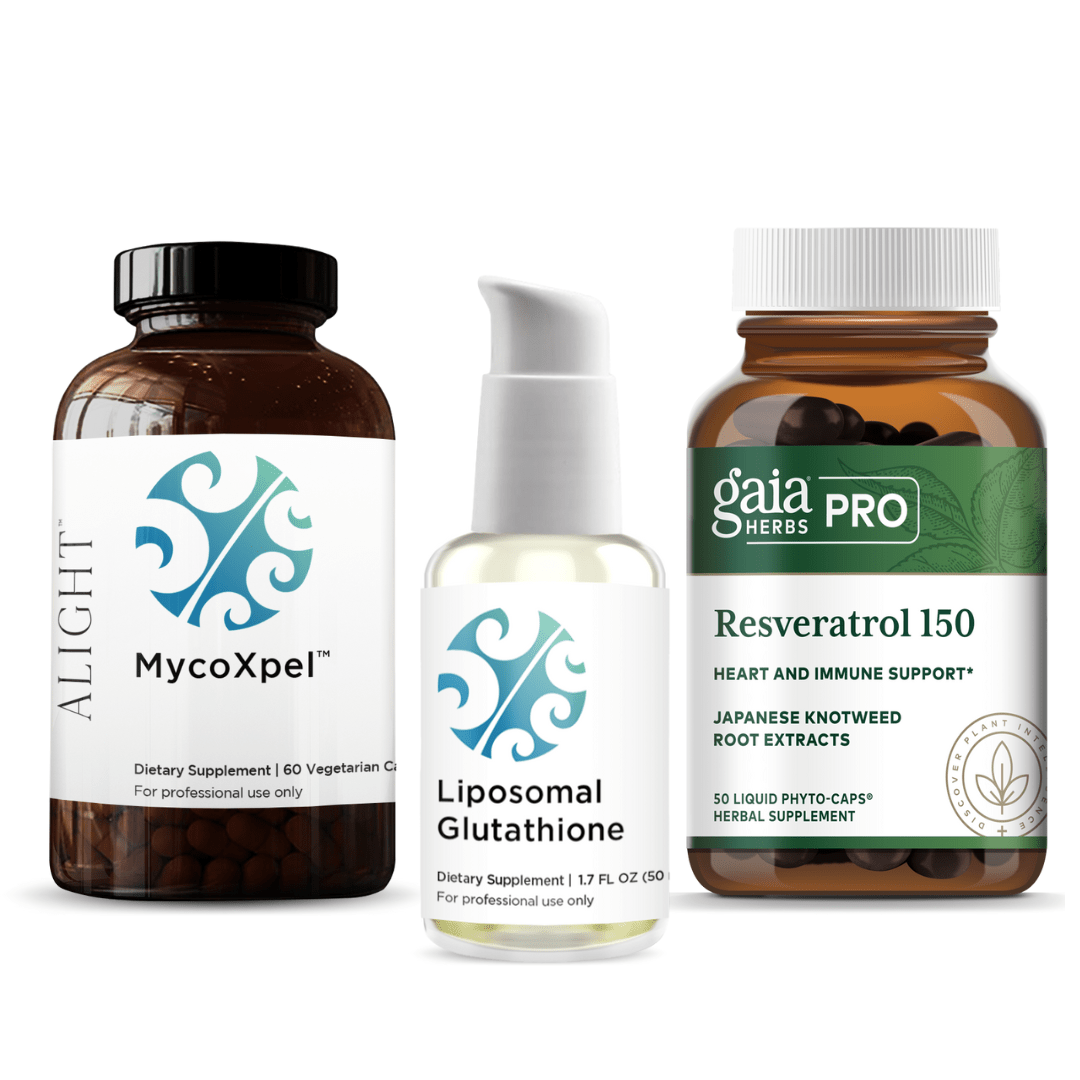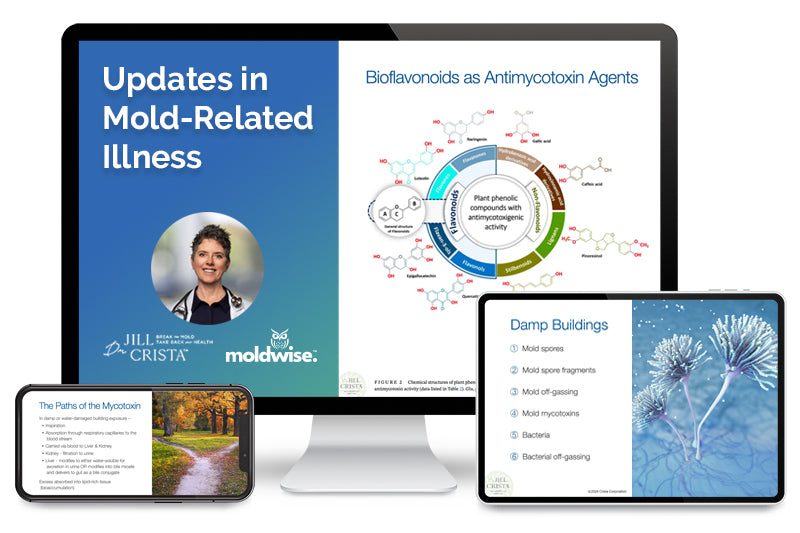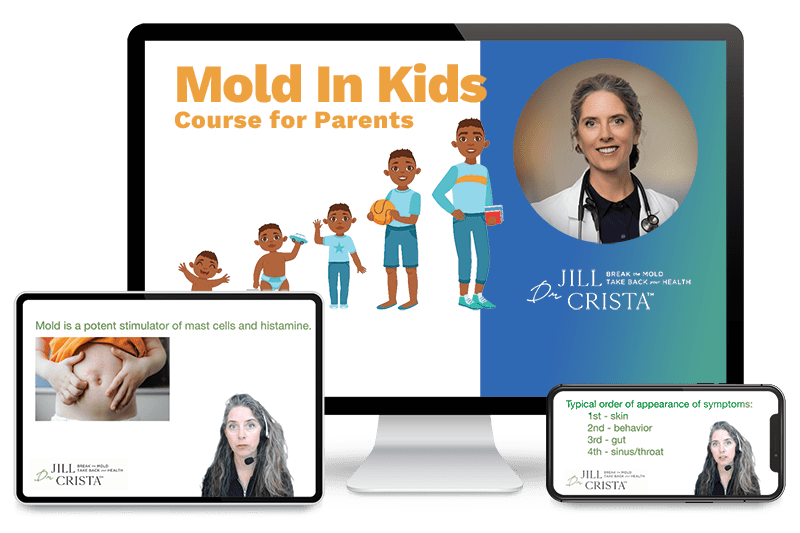
Citrinin
Citrinin is associated with poorly stored grains, but can be present in water-damaged buildings. It’s often found along with Ochratoxin, another kidney toxic mycotoxin.
It has a very broad spectrum of negative impacts on the body, but the kidneys take the biggest hit. Both the kidneys and liver are involved in its detoxification, so treatments are targeted toward supplying Citrinin-specific protection for these organs.
Chief among its other negative impacts is mitochondrial dysfunction, with symptoms showing up most prominently in organ systems under high demand, such as the heart, digestion, and reproduction. Citrinin can also impede fertility and prevent successful pregnancy.

Citrinin Bundle & Save
Buy Now
Signs & Symptoms
- Fatigue, commonly with muscle pain
- Edema
- Short of breath
- Reactive blood sugar
- Reflux, nausea, vomiting, diarrhea
- Heart palpitations, chest pain
- Ulcers, blood in stool
- Menstrual changes, miscarriage
- Urinary pain, frequent urination, nephrogenic diabetes insipidus
- Food sensitivities
- Infertility in both genders
- Chemical sensitivities
Toxicity Revealed
Citrinin was previously used as an antibiotic and investigated as a drug to reduce cholesterol, but its use was discontinued due to toxic effects on the kidneys.
Download the Citrinin Fact Sheet for Patients

Citrinin Q&A with Dr. Crista

Medical Practitioner Technical Sheet
The Citrinin Tech Sheet for Practitioners is included in the Updates in Mold-Related Illness course materials




